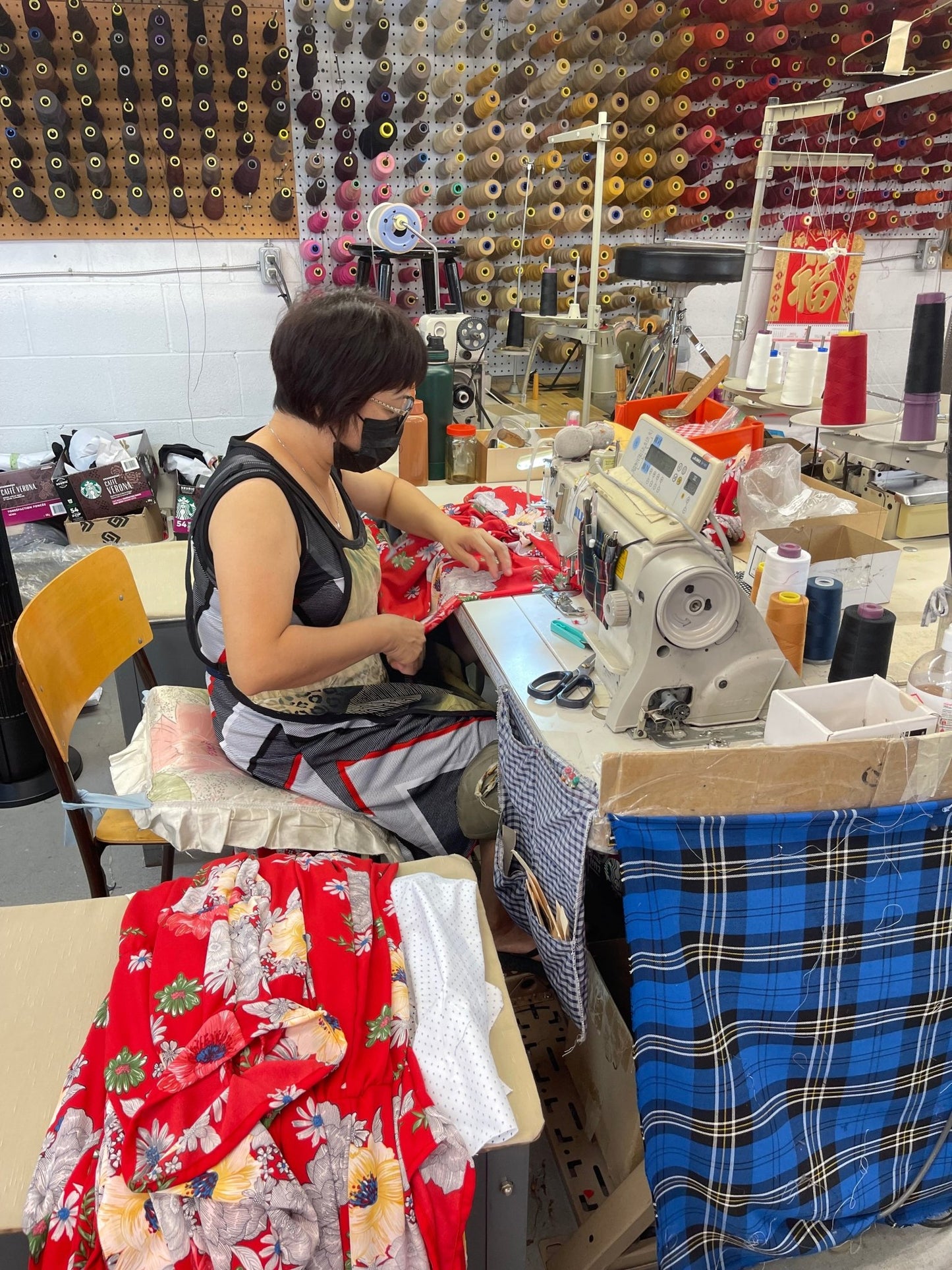
How Difficult Is It To Produce Sustainable Clothes?
Navigating the Path to Ethical and Sustainable Fashion: Challenges and Solutions
In an age where consumers are increasingly mindful of the environmental and social impacts of their purchases, the demand for ethical and sustainable clothing is on the rise. As a leader in sustainable Canadian fashion, Dotty understands the complexities and challenges involved in producing ethical and sustainable clothes. In this blog post, we'll explore some of these challenges and how Dotty is overcoming them to pave the way for a more sustainable fashion industry.
1. Sourcing Sustainable Materials
One of the primary challenges in producing ethical and sustainable clothing is sourcing materials that meet stringent environmental and ethical standards. From organic cotton and bamboo to recycled polyester and hemp, there's a growing array of sustainable materials available. However, ensuring the traceability and authenticity of these materials can be a daunting task. At Dotty, we meticulously vet our suppliers and prioritize materials that are eco-friendly, cruelty-free, and ethically sourced, ensuring that every garment meets our high standards of sustainability.
2. Ethical Manufacturing Practices
Another challenge in sustainable fashion lies in ensuring ethical manufacturing practices throughout the production process. From fair wages and safe working conditions to transparency and accountability within the supply chain, there are numerous factors to consider. Dotty takes a hands-on approach to manufacturing, partnering with local Canadian factories that share our commitment to ethical production. By keeping production close to home, we're able to maintain full control over the manufacturing process and uphold the highest standards of labor rights and environmental stewardship.
3. Minimizing Waste and Carbon Footprint
Reducing waste and minimizing the carbon footprint of clothing production are essential aspects of sustainability. However, achieving these goals requires innovative solutions and a holistic approach to design and manufacturing. Dotty employs cutting-edge technologies and practices to minimize waste throughout the production process, from pattern-making and fabric cutting to packaging and shipping. Additionally, by manufacturing our clothes in Canada, we significantly reduce the carbon emissions associated with long-distance transportation, further lowering our environmental impact.
4. Educating Consumers
Despite the growing awareness of sustainability issues in the fashion industry, many consumers still lack knowledge about the environmental and social impacts of their clothing choices. Educating consumers about the importance of ethical and sustainable fashion is crucial for driving positive change. At Dotty, we're committed to raising awareness about sustainability through our marketing efforts, social media channels, and educational initiatives. By empowering consumers to make informed choices, we're collectively working towards a more sustainable future.
Experience Sustainable Style with Dotty
In conclusion, producing ethical and sustainable clothing comes with its fair share of challenges, from sourcing sustainable materials to ensuring ethical manufacturing practices and minimizing waste. However, with dedication, innovation, and a commitment to sustainability, companies like Dotty are leading the way towards a more ethical and sustainable fashion industry. Experience the beauty and authenticity of sustainable Canadian clothing with Dotty, and join us in our mission to create a brighter, greener future for fashion.
